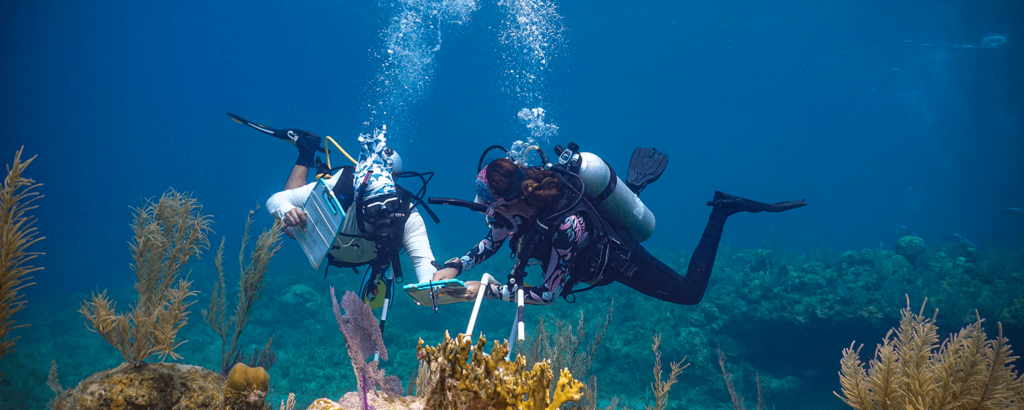AGRRA Training
Empowering Reef Conservation
A 5-Day AGRRA Workshop at Anthony’s Key Resort
From April 24 to 28, 2023, Anthony’s Key Resort and the Roatan Institute for Marine Sciences provided the facilities and equipment for an intensive reef conservation workshop by Atlantic and Gulf Rapid Reef Assessment (AGRRA) and Healthy Reefs. The five-day workshop trained participants from Honduras, Mexico, Guatemala, and Belize in various data collection methods for the health of the Mesoamerican reef. The participants included environmental technicians from these countries’ governments and those from non-governmental organizations (NGOs) responsible for managing the marine protected areas within the Mesoamerican Reef (MAR) region.
The instructors were Ana Giró and Marisol Rueda Flores from AGRRA, along assistants Nicole Craig and Claudia Guerrero; Pamela Ortega from Coral Reef Alliance and Giselle Brady from Bay Islands Conservation Association.
Dive Into Reef Conservation
The workshop commenced with an introduction to reef ecology, pre-knowledge assessments, and then a division of course activities into two main streams – benthos and fish.
Benthos Indicators
This training familiarized participants with various benthic organisms and corals using the AGRRA methodology for identification. The benthic community is composed of diverse organisms living within coral reefs that significantly influence reef conditions. Healthy reefs are marked by plentiful live corals and other reef-building entities, while degraded reefs often see a decrease in live corals, replaced by harmful organisms like fleshy seaweed. Understanding the balance of benthic organisms is vital to preserving reef health. The benthic index calculates a score based on the proportion of live corals and other beneficial organisms and serves scientists, conservationists, and policymakers in making informed reef management and protection decisions.
Fish Indicators
This AGRRA training module delves into the role of reef fish, identifying predators or grazers, and how the balance plays an important role in the dynamics of coral reefs. The method teaches identification and monitoring techniques for reef fish such as angelfishes, groupers, grunts, morays, parrotfishes, porcupinefishes, and snappers, among others. By assessing the diversity and abundance of critical fish species and pinpointing those particularly susceptible to human activities, this index provides valuable data for formulating effective strategies for safeguarding their environments.
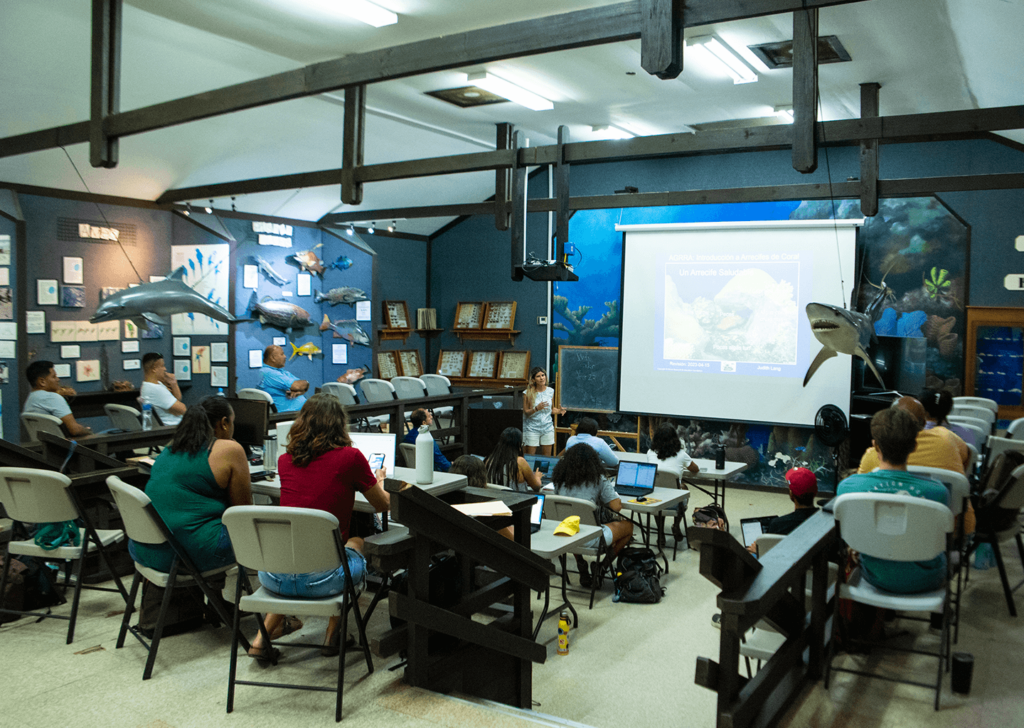
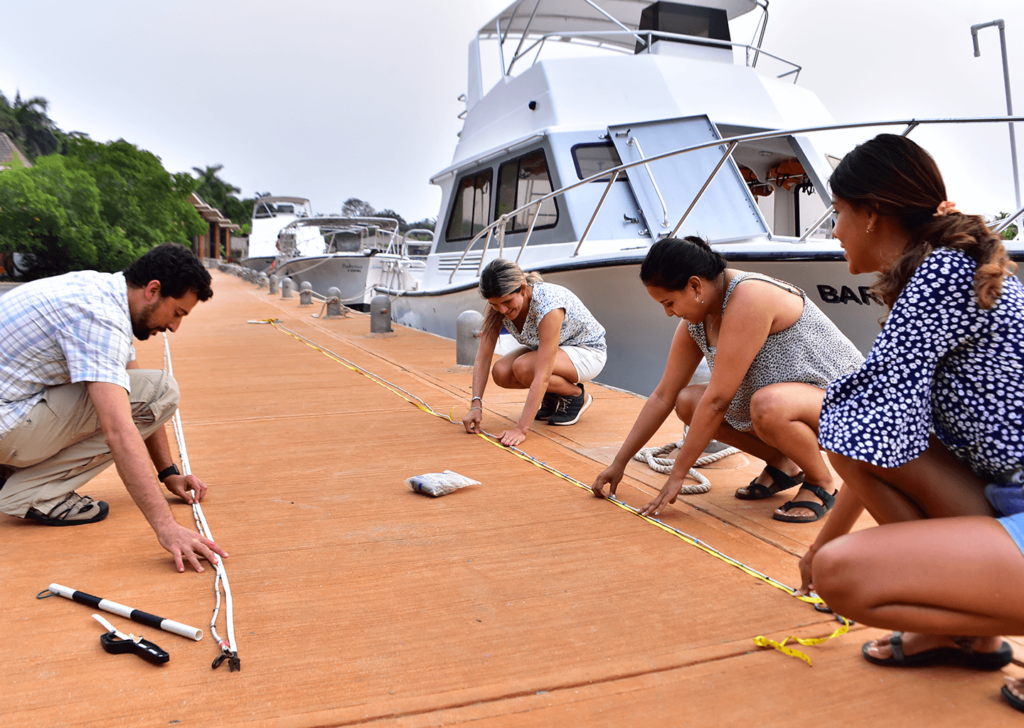
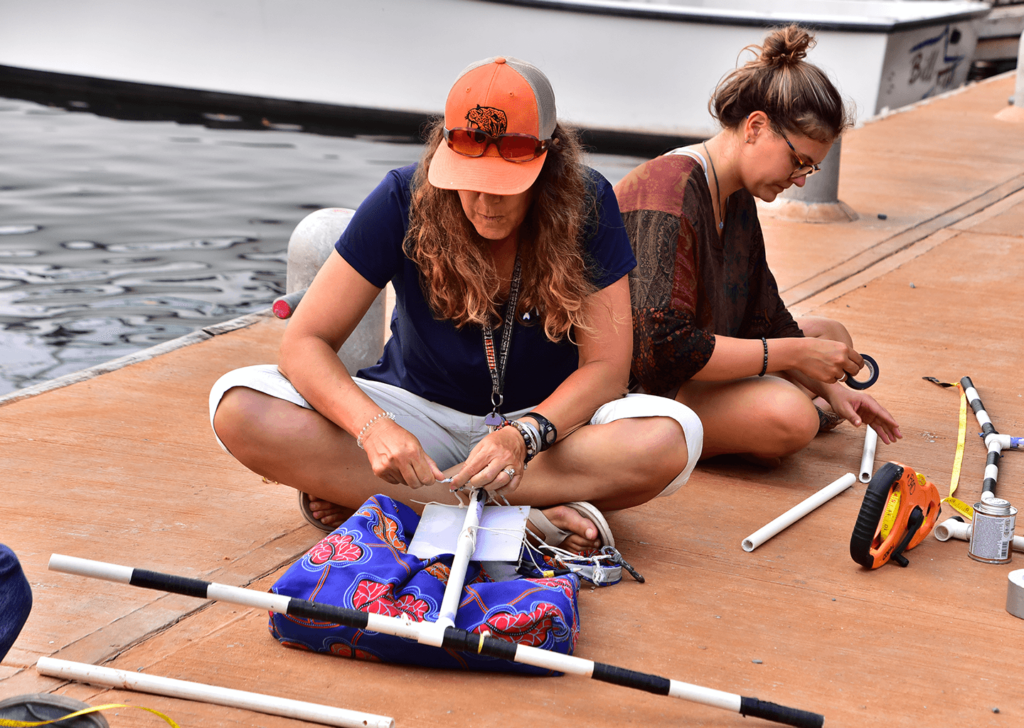
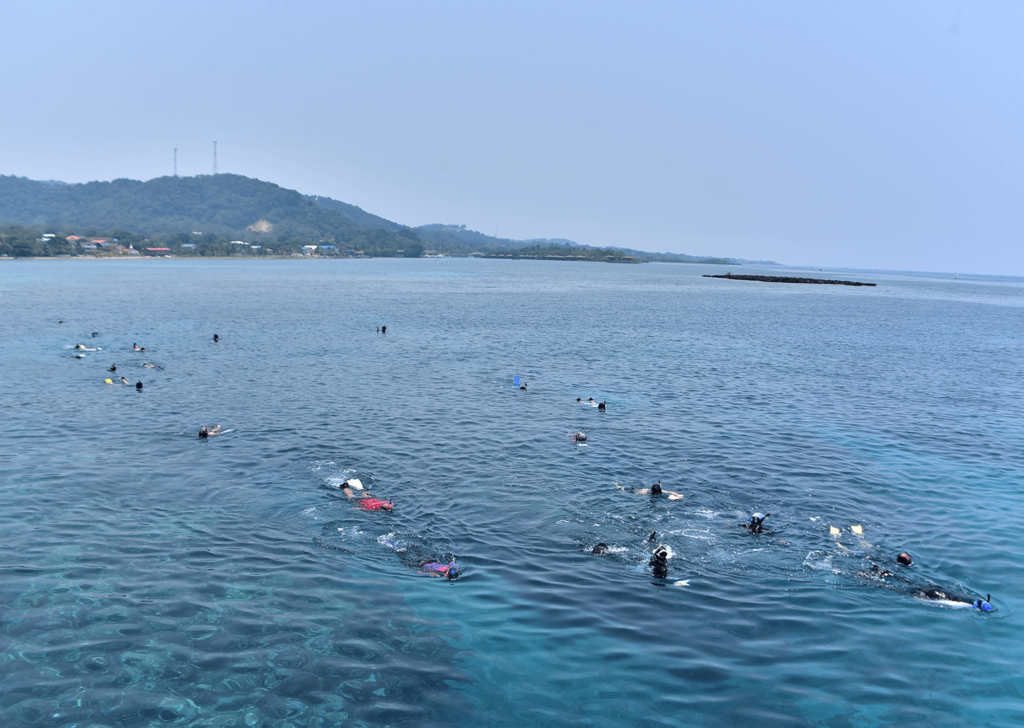
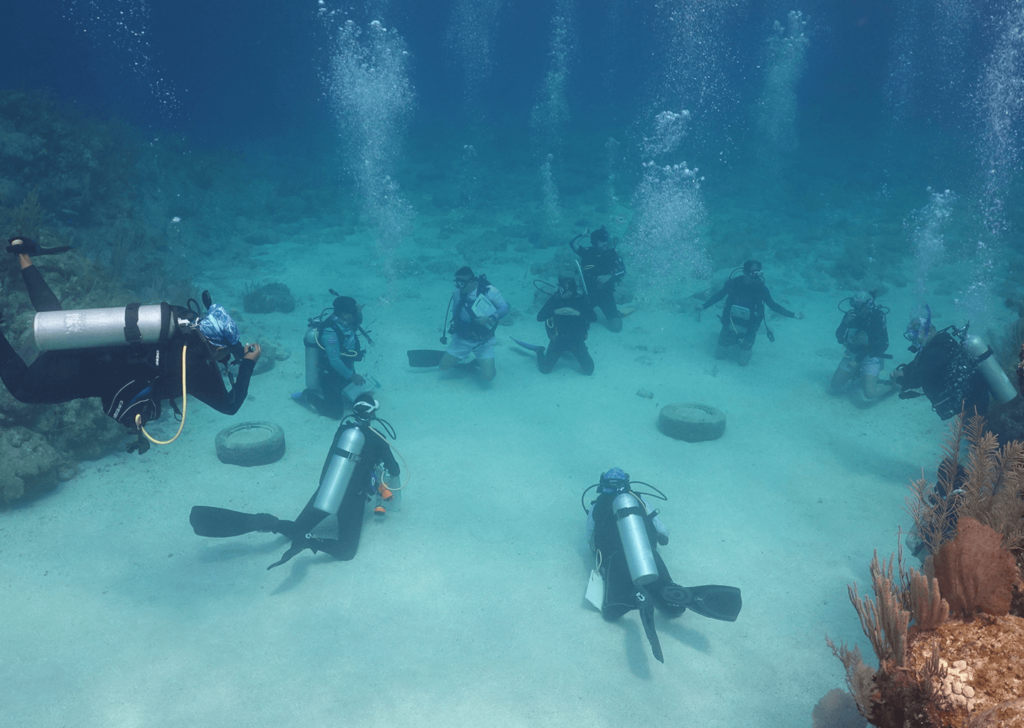
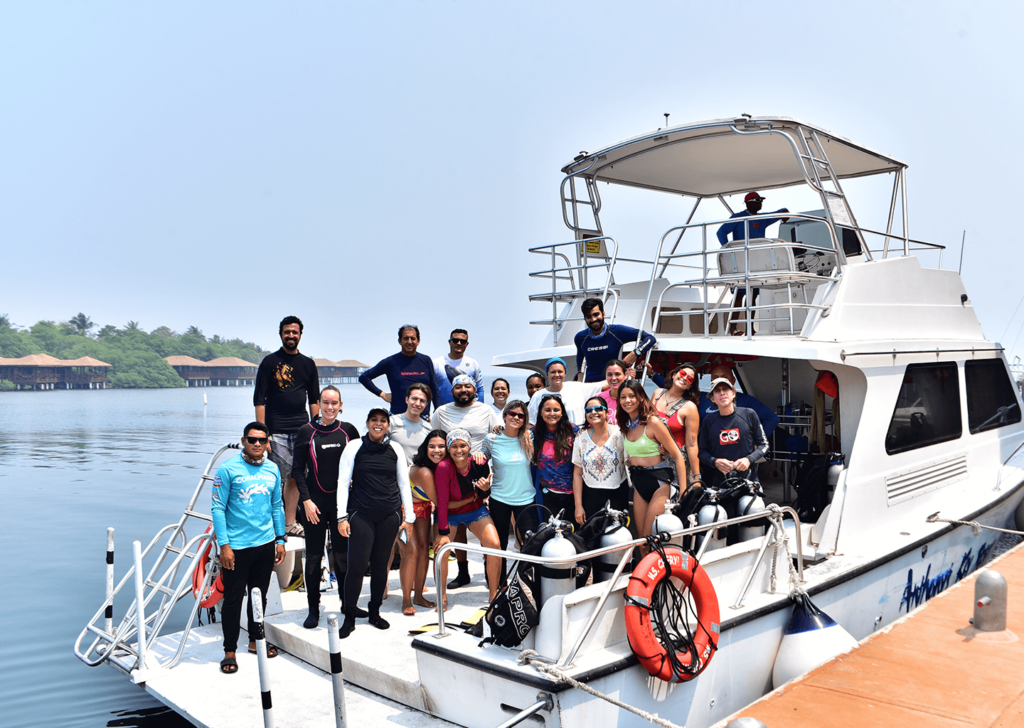
Learning Through Practice
Several snorkeling and diving sessions were planned throughout the training to allow participants to practice their newly acquired skills. The dives varied from assessing participants’ diving skills and familiarizing them with the transect identification method; to implementing complete transects and reviewing their observations with their diving partners and instructors by the end of the workshop.
Wrapping Up the Program
The program concluded with a comprehensive review and final exams. After successful completion, participants were awarded diplomas as a token of their achievement and enhanced expertise in marine conservation.
The Value of Reef Conservation
The AGRRA workshop underscored the importance of marine conservation. It was a great collaboration between Anthony’s Key Resort, the Roatan Institute for Marine Sciences, AGRRA, and Healthy Reefs — all committed to preserving our precious Mesoamerican Reef!
About Healthy Reefs
The Healthy Reefs for Healthy People Initiative (HRI), established in 2003, is built on the understanding that the well-being of reefs directly influences people’s health. Consequently, only when communities are healthy and prosperous can they effectively safeguard the reefs and other natural resources they rely on for their livelihoods and quality of life.
The Healthy Reefs Initiative sets out to accomplish three main goals:
- To encourage managers, policymakers, and other leaders interested in preserving the Mesoamerican Reef Ecosystem to adopt and use the indicators provided by the Healthy Reefs Initiative.
- To standardize the process of analyzing and interpreting reliable scientific data to enhance the management of the reef ecosystem.
- To serve as a platform for sharing information and networking among science and conservation partners.
The Healthy Reefs for Healthy People Initiative fosters discussion and cooperation to bolster efforts to conserve the Mesoamerican Reef.
It’s worth noting that Honduras is home to the largest Marine Protected Area – the Bay Islands National Marine Park. Spanning 647,152.49 hectares, the park is divided into three zones: the coastal, special marine, and buffer zones. This park safeguards a significant portion of the Mesoamerican Reef System, which is severely threatened by global climate change and land-based pollution. The protected marine area extends over Roatan, Utila, and Guanaja Islands.

